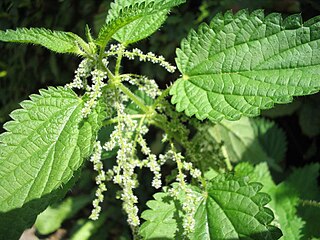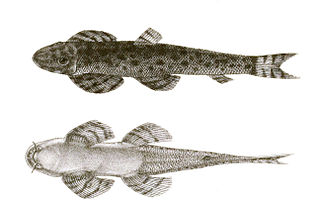
The Urticaceae are a family, the nettle family, of flowering plants. The family name comes from the genus Urtica. The Urticaceae include a number of well-known and useful plants, including nettles in the genus Urtica, ramie, māmaki, and ajlai.

Cipangopaludina is a genus of freshwater snails with a gill and an operculum, aquatic gastropod mollusks in the family Viviparidae.

Paludomus is a genus of tropical freshwater snails with an operculum, aquatic gastropod mollusks in thesubfamily Paludominae of the family Paludomidae.

Truncatella is a genus of very small land snails with an operculum, terrestrial gastropod mollusks in the family Truncatellidae. These small and minute snails live on land, very close to seawater. They walk with a strange looping action, and the adults have truncated shells. Many of the species are small enough to be considered micromollusks.

Pharidae is a taxonomic family of saltwater clams, marine bivalve molluscs in the order Adapedonta. This family of clams is related to the razor shells, a family which is considered to include Pharidae by some authorities.

Pomatiopsidae is a family of small, mainly freshwater snails, that have gills and an operculum, aquatic gastropod mollusks in the superfamily Truncatelloidea.

Bellamya is a genus of freshwater snails with a gill and an operculum, aquatic gastropod mollusks in the family Viviparidae.

Tanychlamys is a large genus of air-breathing land snails, terrestrial pulmonate gastropod mollusks in the family Ariophantidae.

Balitora is a genus of fish in the family Balitoridae endemic to Asia.

Sinoennea is a genus of air-breathing land snails, terrestrial pulmonate gastropod mollusks in the family Diapheridae.
Parafossarulus striatulus is a species of freshwater snail with gills and an operculum, an aquatic prosobranch gastropod mollusk in the family Bithyniidae.
Cyclobacterium xiamenense is a horseshoe-shaped, Gram-negative and non-motile bacterium from the genus of Cyclobacterium which has been isolated from the alga Chlorella autotrophica from the coastal sea of Xiamen in China.
Phaeodactylibacter is a genus from the family Lewinellaceae.
Phaeodactylibacter xiamenensis is a Gram-negative, aerobic, rod-shaped, chemoheterotrophic and non-motile bacterium from the genus of Rubidimonas which has been isolated from the alga Phaeodactylum tricornutum from Xiamen in China.
Phyllobacterium sophorae is a Gram-negative bacteria in the genus Phyllobacterium which has been isolated from the root nodules of the plant Sophora flavescens.
Litoribrevibacter is a bacteria genus from the family of Oceanospirillaceae, with one known species.

Coptocheilus is a genus of land snails with an operculum, terrestrial gastropod mollusks in the subfamily Pupinellinae of the family Pupinidae.











